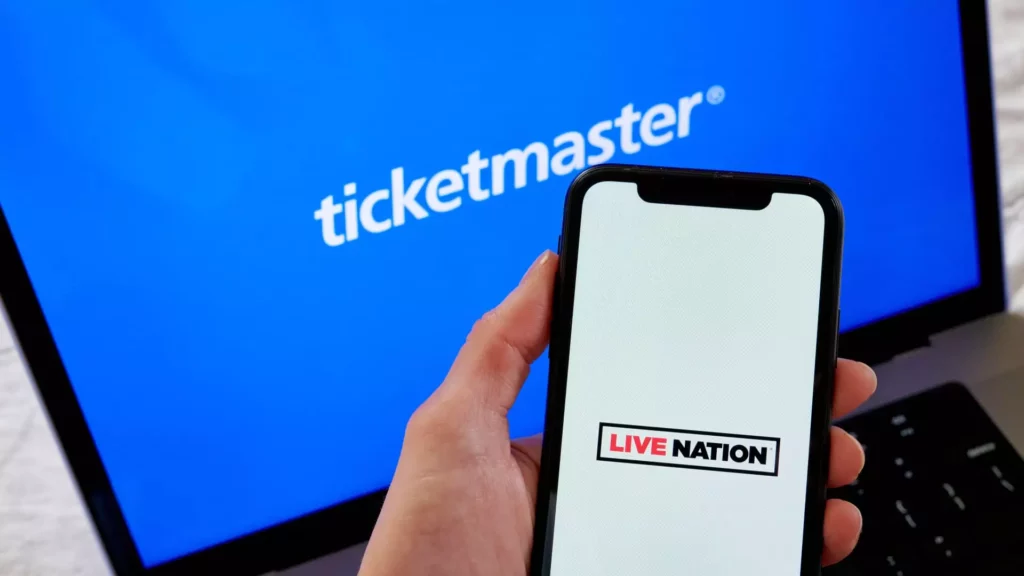![]()
The U.S. Department of Justice has taken legal action against Live Nation, the parent company of Ticketmaster, citing supposed antitrust violations. This lawsuit, supported by 30 states and filed recently, is a result of a detailed investigation conducted by the DOJ to determine whether Live Nation holds a monopoly in the ticketing industry. The probe was initiated in 2022 and has gained traction due to complaints from fans following a chaotic release of tickets for Taylor Swift’s Eras tour.
Attorney General Merrick Garland has emphasized that Live Nation engages in illegal and anticompetitive practices to maintain its dominant control over the live events sector in the United States. The lawsuit argues that these practices come at the expense of fans, artists, smaller promoters, and venue operators. The main accusations include elevated fees for fans, limited opportunities for artists to perform concerts, exclusion of smaller promoters, and reduced ticketing service options for venues. To address these concerns, Garland has advocated for the breakup of Live Nation-Ticketmaster.
Live Nation has staunchly defended itself against the DOJ’s claims, dismissing allegations of monopolistic behavior as “absurd.” The company argues that the DOJ’s complaint erroneously places blame on Live Nation and Ticketmaster for fan discontent within the live entertainment industry. According to Live Nation’s executive vice president for corporate and regulatory affairs, Dan Wall, the escalating ticket prices are influenced by multiple factors including rising production costs, artist popularity, and extensive online ticket scalping.
The merger between Live Nation and Ticketmaster in 2010 led to the formation of a powerful entity within the live event industry. Live Nation now manages ticket sales for live entertainment on a global scale and possesses ownership of over 265 entertainment venues in North America. Moreover, the company controls primary ticketing for major concert venues to a significant extent, with an estimated 80% or more market share. The Justice Department lawsuit alleges that Live Nation has established a self-reinforcing business model that perpetuates its control over the industry.
The lawsuit filed by the U.S. Department of Justice in the Southern District of New York accuses Live Nation of engaging in predatory business tactics. The company is accused of exploiting its influence to secure exclusive promotion deals with artists, thereby controlling access to key entertainment venues nationwide. Additionally, Live Nation is alleged to have stifled competition by intimidating potential rivals, acquiring smaller competitors, and manipulating contracts with venue partners to favor Ticketmaster.
Live Nation made headlines following disruptions in ticket sales for Taylor Swift’s concert tour, prompting a Senate subcommittee investigation and the eventual subpoena of the company. The inflated ticket prices for Swift’s Eras tour have driven U.S. fans to seek cheaper options in other countries, underscoring the disparity in ticket pricing and technological advancement. The DOJ has highlighted the lack of ticketing innovation in the United States and the detrimental effect of high ticket prices on music enthusiasts.
Contrary to the allegations, Live Nation claims that it does not benefit from monopoly pricing and emphasizes that service charges imposed by Ticketmaster are comparable to industry standards, if not lower. The company also states that artists determine ticket prices, while venues retain the majority of ticket fees. Live Nation asserts that the lawsuit will not result in reduced ticket prices or service fees and characterizes the legal action as detrimental to business operations.
Despite the legal challenges, Live Nation reported robust financial results in the first quarter of the year, indicating a 21% increase in revenue compared to the same period last year. The company’s profit margin is noted to be at the lower end among S&P 500 companies. Live Nation remains optimistic about its growth prospects, although transparency issues related to hidden fees in ticket pricing have been a point of contention. The outcome of the lawsuit and its implications for the live event industry remain uncertain.

Leave a Reply